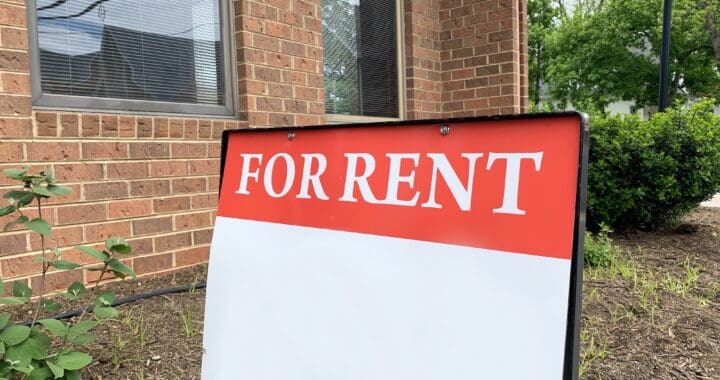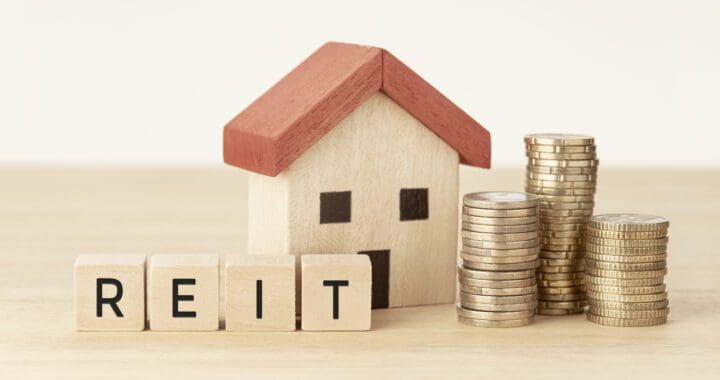The Pros and Cons of Rental Property Investments: A Comprehensive Guide for the FIRE Enthusiast
Are you firmly believing in the FIRE (Financial Independence, Retire Early) movement? Do you believe in developing multiple revenue streams and are okay with getting your hands dirty? Then, by all means, plunge into the appealing and profitable world of rental property investments!
While there are many ways to achieve financial independence, this route stands out as one of the most tangible and rewarding. However, it isn’t without its challenges or setbacks. This article aims to provide a balanced view of rental property investments, painting a picture with all the beautiful shades, the light ones and the dark to help you make an informed decision.
The Allure of Rental Property Investments: Pros
Steady Cash Flow
One of the most seductive aspects of rental property investment is the prospect of a steady and reliable monthly income. This income is derived from the rent paid by your tenants, which can be a significant sum depending on your property’s size, location, and quality.
Whether you’re bracing for early retirement or aiming to build wealth, the consistent cash flow from rentals is a proposition that needs to be addressed. It’s like having a job that doesn’t require your daily presence or effort but still pays you every month. This steady income stream can help cover your living expenses, pay off debts, or be reinvested into other wealth-building ventures.
Moreover, this steady cash flow is relatively predictable, especially if you have long-term tenants. You can forecast your rental income and plan your finances accordingly, providing a level of financial stability that’s hard to find in other types of investments.
This regular income can be a game-changer in the context of the FIRE movement. It can help you reach your financial independence goals faster and, once you retire, provide a reliable source of income that doesn’t rely on the traditional 9-5 job.
However, it’s important to remember that while the cash flow can be steady, it’s not entirely without risks. Vacancies, non-payment, and property maintenance costs can affect your rental income. However, with careful planning and management, these risks can be mitigated to ensure a steady and reliable cash flow from your rental property investments.
Essentially, the allure of a steady cash flow from rental properties is undeniable. It provides a tangible, regular return on your investment that builds wealth and offers financial stability – a critical component for anyone on the path to financial independence and early retirement.

Appreciation Potential
Imagine buying a property today and selling it years down the line for significantly more than your initial investment. Yes, folks, this isn’t a fairy tale but a genuine possibility in real estate. This is what we refer to as appreciation potential.
Real estate tends to appreciate over time, particularly in thriving or up-and-coming neighborhoods. This means that the value of the property increases, allowing you to sell it for a profit in the future. It’s like a fine wine that gets better (and more valuable) with age.
However, it’s important to note that appreciation isn’t guaranteed. Factors such as market conditions, neighborhood development, and overall economic health can influence the appreciation rate. But with careful research and strategic selection, you can greatly increase your chances of landing a property with high appreciation potential.
This potential for appreciation provides an additional revenue stream and contributes to your overall net worth. It’s a long-term play that can pay off handsomely, making it an attractive aspect of rental property investment for those on the path to FIRE and financial independence.
So, while your rental property is generating monthly income through rent, it’s also potentially growing in value. This dual benefit makes rental property investments a favorite among many pursuing the FIRE strategy. It’s like having your cake and eating it, too, or in this case, watching your property value grow while enjoying the fruits of steady rental income.
Tax Benefits
Tax benefits are one of the most enticing reasons to invest in rental properties. As a rental property owner, you can benefit from various tax deductions that can help reduce your taxable income and lower your tax bill. For instance, you can deduct expenses such as repairs, maintenance, property management fees, and even travel expenses related to your rental property.
You can also take advantage of depreciation deductions to lower your tax bill. Depreciation is a deduction that allows you to write off the cost of your property over a set period, typically 27.5 years for residential rental properties. This means you can claim a portion of the property’s value as a deduction each year, significantly reducing your taxable income.
Moreover, you may also be eligible for other tax benefits, such as the 20% pass-through deduction, which allows you to deduct up to 20% of your rental income from your taxable income if you meet specific criteria. Tax benefits can help increase your cash flow and make rental property investments even more profitable. However, consulting with a tax professional is essential to ensure you’re taking advantage of all the tax benefits available while staying compliant with the tax laws.

Equity Building for Rental Property Investments
As you pay down your mortgage, you’re simultaneously building equity in your property. This equity can then be leveraged for future investments or other financial needs, creating a snowball effect that can significantly accelerate your journey toward financial independence.
Inflation Hedge
Rental properties can serve as an excellent inflation hedge. As inflation rises, so do the costs of living, and rental income can increase in response, protecting your purchasing power and maintaining your financial stability. This is because rental income is generally tied to inflation, with rents rising to keep up with the cost of living.
Moreover, rental properties can lock in long-term leases with rent escalations built-in, providing a reliable stream of income that beats inflation.
Investing in rental properties allows you to enjoy a steady flow of income and protect yourself against inflation, which is a critical component of any wealth-building strategy. In this way, rental property investment is not just a way to generate wealth but also to protect and preserve it over the long term.
The Flip Side of Rental Property Investments: Cons
Time and Effort
Rental properties are not a passive investment. They require time, effort, and a certain level of expertise. This is unlike buying stocks or bonds, where you can sit back and check your investment grow (or shrink). Rental properties demand active involvement, making them a hands-on investment that can be a deterrent for some.
From dealing with tenant issues such as late payments, complaints, or disputes to property maintenance like repairs, renovations, and regular upkeep, owning a rental property can feel like a full-time job. This is especially true if you own multiple properties.
Moreover, there’s a learning curve involved. Understanding the real estate market, property laws, tenant rights, tax implications, and other related aspects requires time and effort. You should spend hours researching, learning, and staying updated on these matters.
The time and effort required can be particularly challenging for those on the FIRE path, who often aim to minimize their active involvement in income-generating activities to enjoy their early retirement. However, it’s important to note that these challenges can be mitigated.
For instance, hiring a property management company can significantly reduce the time and effort needed to manage a rental property. These companies handle everything from tenant screening and rent collection to property maintenance and legal issues. While this comes at a cost, it can free up your time and make rental property investment more passive.
Moreover, the time and effort spent can be seen as an investment. The skills and knowledge you gain can help you make better investment decisions, manage your properties more effectively, and ultimately generate higher returns.
While rental properties require significant time and effort, this should be okay with you. You can manage these challenges and turn them into opportunities with the right strategies and resources. After all, the path to financial independence is often paved with challenges that, once overcome, lead to rewarding outcomes.

Market Risks
Like any investment, rental properties are subject to market risks. Much like the stock market, the real estate market is not immune to fluctuations. Property values can rise and fall based on many factors, from local economic conditions to national housing trends. This means that the value of your investment can change over time and only sometimes in your favor.
Rental income, too, can vary based on factors like location, property condition, and market demand. A property in a prime location with high demand can command higher rents. In contrast, a property in a less desirable area or poor condition may need help attracting tenants, leading to lower rental income or even vacancies.
For instance, consider a scenario where a major employer in your property’s area shuts down, leading to job losses and people moving away. This could reduce the demand for rental properties, resulting in lower rents and higher vacancies. Similarly, a surge in property supply due to a construction boom could also lead to a decrease in rental income.
Moreover, broader economic conditions can also impact your rental property investment. During a recession, for example, people might opt to downsize or move to cheaper areas, reducing the demand for rental properties and pushing down rents.
However, it’s important to note that while these risks exist, they can be managed. Careful property selection, regular maintenance, and staying informed about market trends can help mitigate these risks. Diversification, such as owning rental properties in different locations or investing in various real estate types, can also help spread the risk.
Financial Risks
Owning a rental property comes with financial risks. These risks can range from unexpected expenses to changes in your income stream, and if not appropriately managed, can disrupt your cash flow and potentially lead to financial strain.
One of the most common financial risks of rental properties is unexpected expenses. These can include significant repairs like a leaky roof, a broken furnace, or a plumbing issue. While regular maintenance can prevent some of these issues, others can occur unexpectedly and require immediate attention – and substantial funds.
Prolonged vacancy periods are another financial risk. Suppose you’re still looking for tenants for a significant period. In that case, you’ll miss out on rental income while covering property-related expenses like mortgage payments, property taxes, and maintenance costs. This can put a dent in your cash flow and, if prolonged, can lead to financial stress.
Additionally, non-payment of rent by tenants is a risk that can impact your financial stability. While tenant screening and a solid lease agreement can help prevent this, it could be more foolproof.
Moreover, there’s the risk of property devaluation. If your property’s value decreases due to factors like a downturn in the real estate market or deterioration of the neighborhood, you could end up with a property worth less than what you paid for it. While the prospect of rental property investments is undeniably alluring, it’s important to acknowledge that they’re not a guaranteed path to financial gain.
Legal Issues
Legal compliance is a crucial aspect of rental property ownership that must be considered. As a landlord, you must adhere to various local, state, and federal laws that govern the rental property industry. Non-compliance with these laws can lead to severe consequences, such as hefty fines, legal disputes, and even eviction of tenants. Therefore, it’s essential to stay up-to-date with these regulations and ensure that your rental property meets all the necessary legal requirements.
Landlords may face common legal issues, including fair housing laws, lease agreements, security deposits, eviction laws, and property maintenance and safety codes. Understanding and implementing these regulations in your rental property can be time-consuming and challenging, especially for first-time landlords. Additionally, laws may differ depending on the location of your rental property, making it crucial to research and comply with the specific laws applicable to your area or country.
Concentration Risk
Investing heavily in rental properties can lead to a concentration of risk. Your financial health could be significantly impacted if the real estate market takes a downturn. Diversification is key to mitigating this risk.
In conclusion, rental property investments can be a powerful tool in your FIRE strategy. However, it’s important to understand the potential risks and challenges involved. By doing so, you can make informed decisions and increase your chances of achieving your financial independence goals.
Remember, the journey to financial independence is a long marathon, not a sprint. Take the time to educate yourself, plan carefully, and make strategic decisions. With patience, perseverance, and luck, you can build a profitable rental property portfolio and achieve your dream of early retirement.






Pingback: Navigating the Vast World of Investments: A Beginner’s Guide -
Pingback: Creating Multiple Income Streams for Financial Independence - Financial Audiences